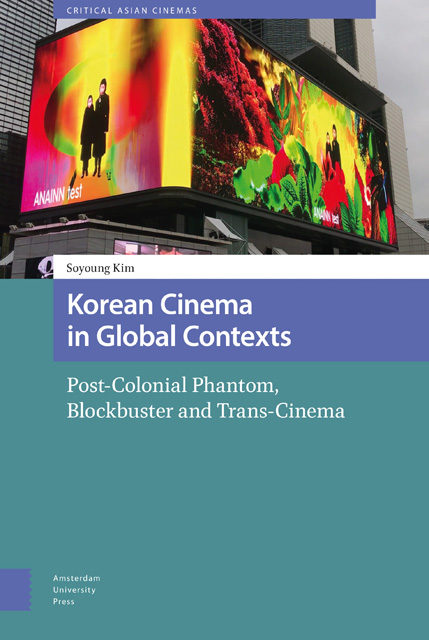11 - Comparative Film Studies : Detour, Demon of Comparison and Dislocative Fantasy
Published online by Cambridge University Press: 16 November 2022
Summary
Abstract
This chapter elaborates an emergent framework of comparative film studies to illuminate the unresolved site of the colonial cinema of Joseon (Korea) under Japanese rule by mobilizing concepts such as detour and dislocative fantasy to depart from the usual demon of comparison.
Keywords: postcolonial archive, theory as sociability, Joseon cinema
Detouring
“Detouring through Korean Cinema” by the late Paul Willemen is one of the very first theoretical essays on South Korean cinema, originally conceived in 1996 and published in 2002 in Inter-Asia Cultural Studies 3(2), at a time when South Korea itself – not to mention its cinema or popular culture – was still a famously isolated land on the global map. The Korean wave and the Gangnam Style were not even glimmers on the horizon, although Kim Ki-Duk had made his first film by then. Despite, perhaps precisely because, of the South Korean cinema's critical distance from the global symbolic, his essay suggests that it unwittingly offers a way to “test […] [Euro-American] models of understanding cinema.” It goes on to mobilize notions of “subjectivity” and “blockage” to provide a diagnostic and dialogic understanding of the “failure” of South Korean cinema at international art cinema venues. Willemen argues that
in view of the fact that notions of subjectivity, especially as represented in the orchestration of narrative voices into the process of narration, are inextricably connected with the way modernity negotiates notions of individuality in cultural production, this blockage within Korean film culture is likely to be manifested in “troubles” concerning the manipulation and inscription of the narrative voice, typically in the form of difficulties around the problems of “who speaks?” (as in Lee Jang-ho's The Man with Three Coffins) and “how to narrate events-in-spaces,” that is to say: how to handle the spatio-temporal aspects of cinema pivoting around the narrational axis of the narratorial voice. (Willemen 2002, 175)
Detouring through Korean cinema allows questions to be raised regarding how texts register the histories within which they arise and
how [it is] possible for cultural productions that are formed within one set of social-historical conditions to be “appreciated” in other socialhistorical configurations. Or, in different terms: how is it possible for a twenty-first century European to appreciate Korean cinema, or any other non-European cinema, for that matter? (Willemen 2002, 181)
- Type
- Chapter
- Information
- Korean Cinema in Global ContextsPost-Colonial Phantom, Blockbuster and Trans-Cinema, pp. 195 - 210Publisher: Amsterdam University PressPrint publication year: 2022



